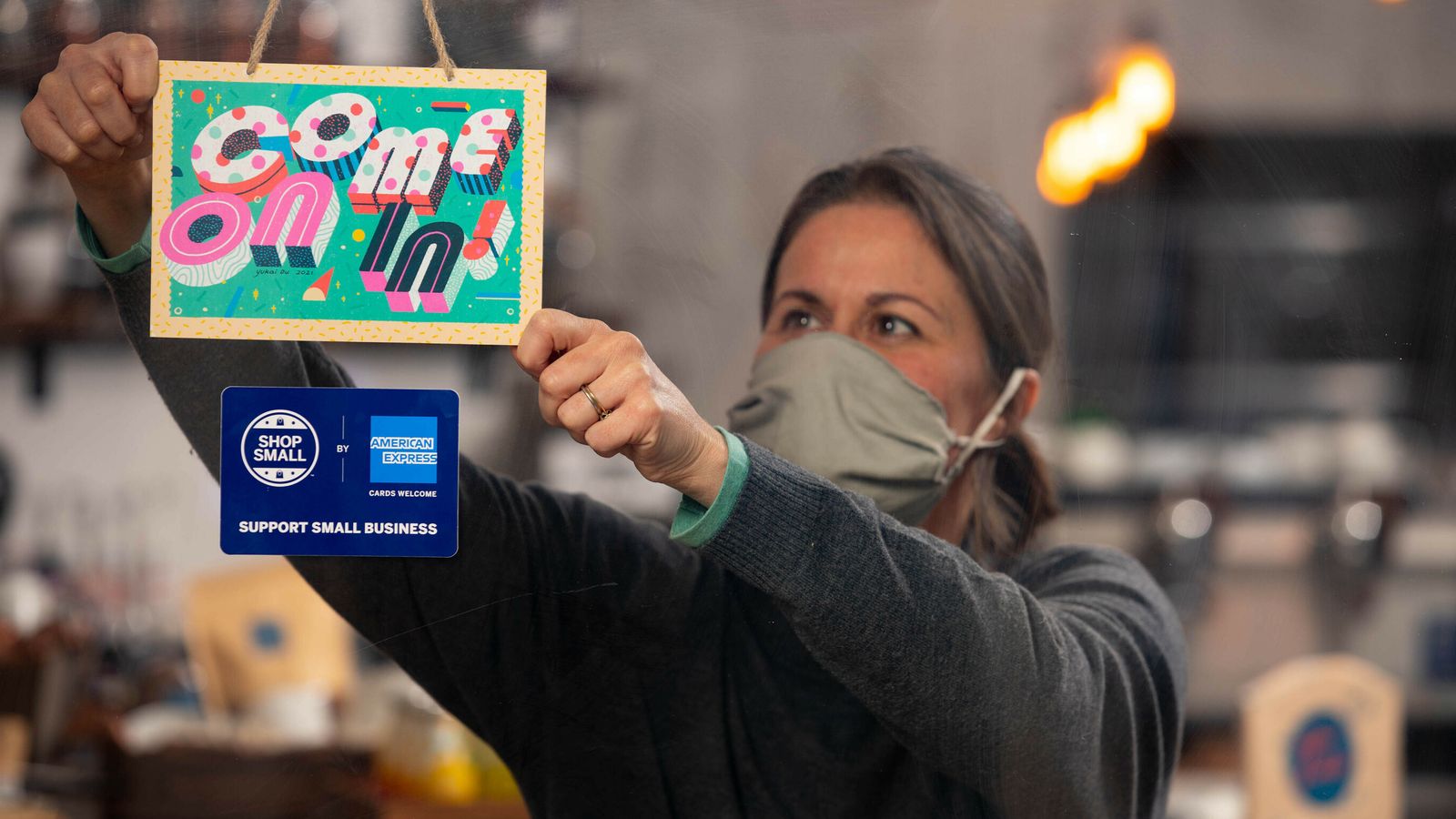Levels of exasperation are running high amongst business owners in Brighton thanks to the so-called “pingdemic”.
Brighton’s Lanes are brimming with independent shops and vintage vibrancy.
But just as the number of visitors climbs, the self-isolation alerts are ramping-up too, and the businesses left-off the isolation exemption list are frustrated.
Jewellery maker Natasha White has taken drastic action after she says she was “pinged” five times in the space of a week.
She’s now deleted the NHS app.
“You get a lot of people coming through the shop and all of a sudden, I just was getting loads and loads and loads of notifications through the app saying I had to isolate,” she said.
“But I was testing to see if I had COVID and I didn’t. It didn’t seem sustainable. So I ended up deleting the app because I thought I’d be isolated all summer.”
Whilst critical workers are relieved with the new guidance, for the many sectors left out like retail and hospitality, they are potentially contending with staff shortages and a loss in revenue.
Most of the independent businesses are run by small teams. One “ping” could lead to closing-up shop.
“There’s only two of us that work at the shop, so the shop would not be open, it wouldn’t survive,” Ms White tells Sky News.
“A lot of small businesses around here are shutting down now because of the ‘pinging’.”
The frustration is clear but the worry and fear is more evident.
The threat that workers may be “pinged” by the coronavirus app – which is separate from the Test and Trace service – weighs heavy on the minds of owners and managers.
Many argue the app is failing, by not recognising safety precautions like masks and glass screens between tills and customers.
Sales advisor Katie Cassidy has just returned from 13 days of self-isolation.
She’s had one jab and recently recovered from COVID herself.
“For me the app is so flawed because it’s done by Bluetooth, so I could live next door to someone who has COVID and I could get pinged because our phones are near each other,” she said.
“It makes no sense, there’s no logic to it and in my opinion that app is just a waste.”
Daily testing in place of self-isolation feels like a luxury that Ms Cassidy believes should be extended to more sectors.
She says she has struggled mentally and financially during her isolation period, and believes both could’ve been avoided.
She told Sky News: “As a young person, work is the only structure you have. So not having that and having to stay at home is so detrimental to people’s mental health, it really impacted me in that way, just by not having that routine.”
For the self-employed or those like Gregg Gill who works in a BBQ restaurant on a zero hours contract – self-isolating means a sudden cut to their paycheck.
“I’ve lost a lot of money to COVID,” Mr Gill tells Sky News.
“I’ve had to unwillingly borrow money off my mother to pay my rent, as I’ve marked up quite deep in my overdraft at the moment. Financially I’ve definitely been hit quite hard.”
The NHS app is seen as one of the government’s key tools for ensuring public safety.
From 16 August, self-isolation will be eased for fully vaccinated adults, but the majority of those working in the retail sector in Brighton and beyond are under 30.
They will need to wait a while longer till they are free from the “pinging” and the responsibility it brings.






















